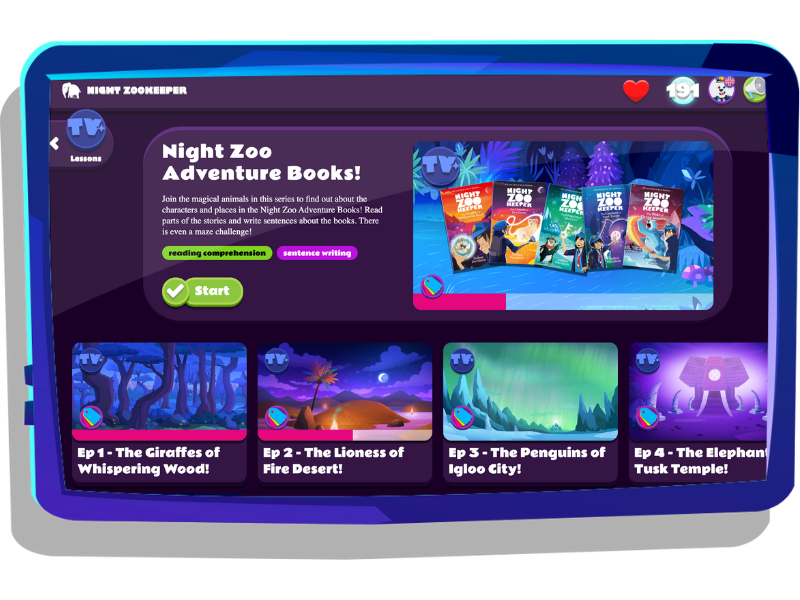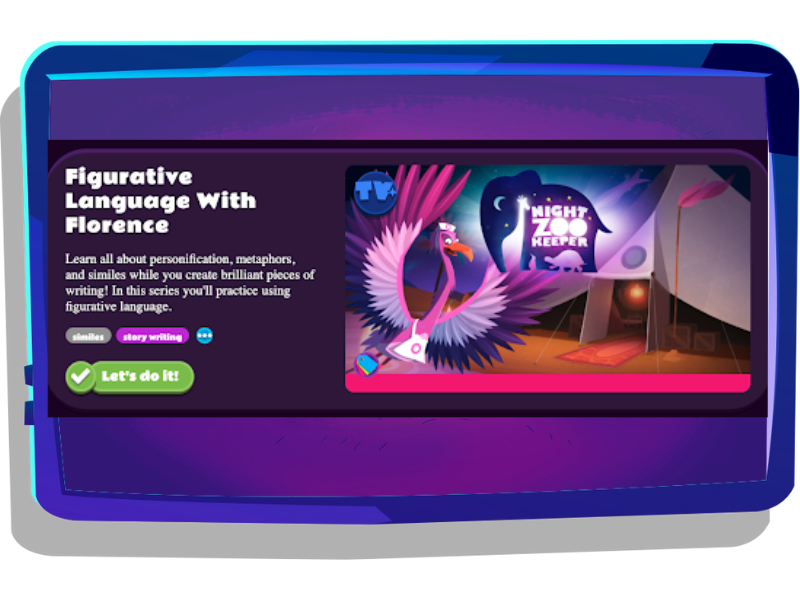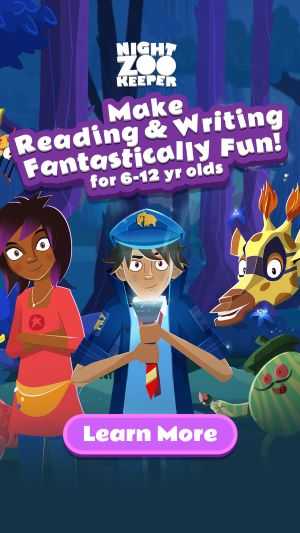Year 6 Reading
Discover Year 6 Reading Standards

Home > English > Reading > Year 6
In Year 6, your child can expect an ever-increasing list of challenges, as they begin to explore new vocabulary and text types. This is an exciting time for young learners, as they push themselves to develop ‘next-level’ reading skills and actively demonstrate what they have learned in previous years.
Your child should increase the amount of non-fiction texts they’re reading in Year 6, and notice an increased complexity in the texts they're exposed to. This is all designed to push their reading skills to the next level and provide them invaluable tools that they’ll continue to use throughout their continued education.
You can support your child through this process by working on the following key techniques and concepts that they’ll experience within their last year of primary education.
A Variety of Texts
Before your child’s Year 6 journey truly begins, they should familiarise themselves with a wide range of text types. They should be able to identify the core features and know the purpose of each of the following text types:
- Stories
- Poems
- Biographies
- Reports
- Explanations
- Instructions
Word Reading
As they begin to read more challenging texts, your child will come across new words and unfamiliar vocabulary. They should draw upon some key skills learned in previous years to understand what these new words mean. Here are few skills you can practise with your child:
- Using a dictionary and thesaurus to look up an unknown word.
- Finding the root of words (such as identifying prefixes and suffixes).
- Using sentence context to understand the meaning of a word.
Download the English National Curriculum Word List for Years 5 and 6.
Reading Literature
When reading literature in Year 6, your child should be able to accurately cite evidence from a text to support their ideas. They’re expected to know how to summarise the plot of a story, or explain why a character is behaving in a certain manner. They should also be able to make detailed predictions about what may happen later in the story based on their understanding of the text so far.
At this Year level, it’s important that your child reads a range of books in a variety of genres. It may be tempting for them to select books that they enjoy or are most interested in (which is also to be encouraged), but they should challenge themselves to step outside of their comfort zone and read other types of text.
Practice Tip
Try this reading comprehension lesson series on Night Zookeeper to consolidate your child's knowledge!

Figures of Speech
There are many figures of speech that learners will discover when reading in Year 6. They should be aware of how to spot these and understand why the author is using them. This deepens their understanding of the text they’re reading.
You can use this list to practise some of the most common with your child:
- ONOMATOPOEIA - Words that sound like their meaning: “boom, meow, oink”
- SIMILE - A comparison tool: “As light as a feather.”
- IMAGERY - Language that appeals to the senses
- METAPHOR - A comparison tool (does not use ‘like or as’): “She's a shining star.”
- ALLITERATION - The repetition of consonant sounds: “brave brown bear”
- PERSONIFICATION - Giving human qualities to non-human things
- HYPERBOLE - “I haven't seen you in forever!”
- IDIOM - A phrase has been given a meaning different from its literal meaning
Practice Tip
Ask your child to work on the Figurative Language lesson series on Night Zookeeper to improve their knowledge and understanding of figures of speech.

Evidence and Inference
Finding evidence and inferring meaning within a reading passage, text or book chapter is another key reading skill your child must master in Year 6. While finding evidence might come quite naturally to your child, inferring meaning can be a lot more challenging.
Examples of finding supporting evidence may include:
- extracting key statistics
- highlighting a key piece of research
- identifying a fact about the subject you’re reading about
Examples of inferring meaning may include:
- quoting a character from a story and explaining the hidden meaning behind their use of a phrase
- identifying why a character had a certain feeling and find an excerpt from the story to support this
Research and Gathering Information
When reading informational text, your child needs to cite evidence to support their conclusions. They should be able to identify the main idea in a text and summarise it. Understanding the meaning of words and phrases within an informational text is another important reading skill.
Practice Tip
Challenge your child to make a glossary of the important words in an informational text that they’ve enjoyed recently. This will help them identify the key ideas from within the text and also help them keep a record of all the important technical vocabulary they’ve learnt from that text.
Active Reading Skills
When researching, children will also need to lean heavily on their active reading skills in order to extract the information that they will need to compose their essay or report. A few of these useful techniques and skills are summarised below.
Active reading skills are crucial points of development as learners prepare for their higher education. Research skills to support essay writing can also be developed in Year 6. When researching, your child should use their active reading skills in order to extract the information they need when writing an essay or report at a later date.
Here are a few techniques that you can practise together with your child:
- Note taking
- Highlighting key words and phrases
- Using post-it notes
- Drawing diagrams
- Making notations in the margins
- Story plot diagrams
How Night Zookeeper can help

Looking for a fantastically fun way to keep your Year 6 child engaged and entertained as they learn? Try Night Zookeeper!
Our reading & writing program for kids provides various different ways for your Year 6 child to work on developing reading skills, such as the ones covered in this guide. Our award-winning content has been created by education experts and includes reading comprehension activities & lessons, vocabulary & word games, and reading challenges. Night Zookeeper offers an adjustable year/age level feature, to allow children to learn at their own pace and get all the reading practice they need to succeed!
Sign up today to claim a 7-day free trial!
Related articles


Make Reading & Writing Fantastically Fun!
- Award-winning reading & writing program for kids
- Improves spelling, grammar, punctuation & vocabulary
- Over 1,000 different learning games and activities



